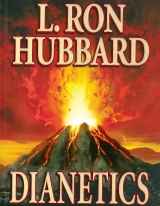Is After Earth a Film Intended to Promote Scientology Beliefs?

Will Smith’s latest movie, After Earth is a $130 million sci-fi adventure starring Will and his 14 year old son, Jaden. The film opened this past Friday, May 31, 2013, to universally poor reviews. While some reviewers tore the film to shreds, others said that the film has clear ties to the highly controversial religion, Scientology.
The internet is now buzzing with various claims that the film was strongly influenced by the Church of Scientology and the teachings of its founder, L. Ron Hubbard. The first to make these claims appears to have been an anonymous Reddit user (who deleted his account hours after posting his theories).
After viewing the trailer for the film, the user posted a lengthy post on Wednesday, May 29, 2013 arguing that “Will Smith and his family are Scientologists,” that the film emphasized several core concepts of Scientology, and that the film follows in the footsteps of other Scientology-inspired films like Battlefield Earth and attempts to subconsciously encourage viewers to become part of the religion.
Although at times the Redditor makes some over-the-top and offensive claims, he provides an impressive amount of research to support his contentions. The Redditor first explains that Will and Jada Smith founded a private elementary school in southern California, which was attended by both of their children as well as Suri Cruise, daughter of the popular actor and prominent Scientologist, Tom Cruise. Although the couple has publicly denied any ties to Scientology, much of the evidence suggests otherwise. According to a Fox News article published in May of 2008 entitled “Will Smith Funds Private Scientology School,” the school uses “some teaching methods developed within the Church of Scientology,” and the school “has hired a team of Scientologists to put them together.” The school’s Director of Learning, Director of Qualifications and Artistic Director are all scientologists, and the school’s website lists “study technology” as one of its educational theories, which is “an educational model developed by L.R. Hubbard” – the founder of Scientology.
Furthermore, the article details that the school’s official site uses many Scientology terms including “spiraling” and “gradient,” to describe the students’ progressive learning process. The Redditor points out that in the same year he founded the school, Smith donated $122,500 to the Church of Scientology (a statement once again supported by a Fox News article). Moreover, the Smiths also donated $20,000 to the Hollywood Education and Literacy Program – a program run by Applied Scholastics, which is a non-profit corporation designed to promote the use of L. Ron Hubbard’s “study technology.”
After providing the aforementioned evidence showing that the Smith family appears to have strong ties to Scientology, the Redditor delves into the seemingly Scientology-inspired values conveyed in the film. The first concept he focuses on is the primary orienting point of the film, which he calls the “Abandoned earth.”
According to leaked Scientology documents, the higher level Scientologists are introduced to the theory that 75 million years ago a being known as “Xenu,” who was the dictator of the “Galactic Confederacy” brought billions of his people to Earth, which was then known by another name, and he stacked them around volcanoes and killed them. Eventually, a government faction known as the Loyal Officers overthrew Xenu and locked him away. As a result, Earth was abandoned by the Galactic Confederacy and labeled a “prison planet” (a statement which L. Ron Hubbard can be heard speaking about here).

In After Earth, the Earth has been abandoned for thousands of years and Will and Jaden Smith survive a crash landing on the planet and in doing so become the first two humans to return to the planet since its abandonment. Interestingly enough, the climax of the film takes place near a volcano that looks shockingly similar to the volcano that has been featured on the cover of Dianetics (the book written by L. Ron Hubbard that began Scientology) for the past 50 years.
The next point the anonymous Redditor brings up linking the film with Scientology is that of “emotion control” – one of the core principles of L. Ron Hubbard’s teachings. In the film and in the trailer, Will Smith, who serves as Jaden’s mentor, continuously reminds Jaden to stay rooted in the present and remember that “Fear is not real. It is a product of thoughts you create… Danger is very real, but fear is a choice.” This refrain is mirrored in the ideas presented L. Ron Hubbard’s initial Scientology-related publication, Dianetics.
As explained by the Redditor, in Dianetics Hubbard presents the idea that “negative emotions are from traumatic experiences in our genetic memory, encoded on our cells to form ‘engrams.’” This idea is one of the core ideas of Scientology – people can clear these engrams in a process known as “auditing” and in doing so will be able to take control over their lives. The ability to clear these “engrams” can be measured through the use of “E-meters,” which use the scale taken from the Scientology handbook. In After Earth Will Smith teaches Jaden to control his thoughts and emotions by analyzing his surroundings – he frequently asks Jaden, “What do you touch, see, feel, smell?” According to ex-Scientologist Mark Headly, who wrote extensively of his experiences with the Church in his book Blown For Good: Behind the Iron Curtain of Scientology, Hubbard insisted that “emotions and fear are triggers and are part of the reactive mind” and “through Scientology one is supposed to ‘rid oneself of your fears’ and ‘be in the present moment.’ Headly explains that in certain types of Scientology counseling practitioners are asked to recall what they can “see, hear, touch and smell” as part of observing the moment with “full perceptions.” Interestingly enough, the first of the many times in which Jaden goes through this orienting process he mentions that his body feels “heavy” due to Earth’s heavy gravitational pull – a point Hubbard mentioned in his aforementioned description of Earth as a “prison planet.”
Jaden’s ability to orient himself in the environment is one of the many ways in which he attempts to control his emotions throughout the film. At the beginning of After Earth it is established that the most dangerous creatures on Earth are effectively blind but can find humans by recognizing the pheromones released when they are afraid. Therefore, in order to kill these beasts, one must be able to completely mask their emotions. Will Smith’s character is the absolute best at killing these creatures, and throughout the film he remains entirely devoid of any emotion.
Headly explains that in Scientology, practitioners spend a tremendous amount of time training and going through counseling to control their emotions and “mis-emotions,” as Hubbard calls them. In a Vulture article published May 31, 2013, writer Matt Patches explains that Jaden’s character is what the Church would call a “misguided thetan” (a thetan is the Church’s word for a soul), which essentially means that he struggles because he is not in control of his thoughts and emotions. Hubbard’s writing stated that Scientology’s goal “is to rehabilitate a thetan’s control over MEST (matter, energy, space, and time) – which is exactly what Jaden’s character strives to do throughout the course of the film. It is only when he finally achieves this clear understanding of himself and is able to rid himself of his engrams that he is able to succeed.
The next point the anonymous Redditor made was that the film emphasizes parental influence. In my opinion this is a claim that seems quite off base – many films play off this need, and it doesn’t seem to have an inherent link to Scientology. Clearly, Jaden’s character struggles to gain the respect of his father. In fact, a majority of the film’s conflicts stem from this perceived necessity. Although I don’t believe that this has any tangible connection to Scientology, I believe that buried within this relationship is a link that needs to be explored.

Throughout the film Jaden is guided by the instructions his father gives him – instructions which, as previously mentioned, require him to rid himself of his fears and live in the present moment – a process which both Mark Headley and Matt Patches likened to the auditing process in Scientology. The Daily Mail also makes note of this similarity, saying, “Will Smith’s character ‘audits’ his son from afar, a Scientological precept where someone helps you erase painful memories in order to find inner strength.” Patches explains that the high-tech, “Smart Fabric” suit Jaden wears is much like an E-meter – it delivers current health stats to Will, who in this case, acts as the auditor. When Jaden’s heart rate increases it shows that he is struggling to cope with his engrams.
This auditing process allows Jaden’s character to develop a strong set of skills exclusively through this process of self-actualization – Will’s character never actually teaches Jaden’s character any useful combative skills. When the film begins Jaden’s character fails his training to become a ranger, but his father adds him to the mission anyway. When the ship crash lands he is forced to brave dangerous alien terrain alone despite his subpar skillset. As he is audited by his father he gradually learns how to analyze and understand himself, which allows him to acclimate and eventually dominate the new environment – this follows the core principles of the “Study Tech” Jaden uses in his real-life, Scientology-linked school. Study Tech uses a “gradient” approach to learning, which the Church of Scientology describes as “a gradual approach to something, taken step by step, so that, finally, quite complicated and difficult activities or concepts can be achieved with relative ease.”
Overall, After Earth seems to be strongly linked to the ideas espoused by the Church of Scientology. There is certainly a compelling argument that this is yet another attempt to create a film that has Scientology values embedded in it. Assuming these theories are correct and the film was heavily influenced by Scientology, there’s no telling how Hollywood will handle new Scientology-related films. I find myself asking the question that other writers seemed to address: Is a Scientology-related film that much different from films inspired by other religions? Will moviegoers accept films with Scientology themes as they do films featuring ideas promoted by other major religions?
What do you think? Leave a comment.











Discussions about this started at a private discussion board where one user started to compare the movie to the religion. It went mainstream when another user grabbed his study and posted it on Reddit.
The conclusion of the story is that the film is bad. And that is what that matters.
I remember watching Battle Earth, that Travolta movie in a state of shock. What did I just watch!
Whilst I understand the appeal of linking this movie directly to Scientology because of the Will Smith rumours of the past, I feel like some of the arguments may be a bit of a stretch. Because Scientology is based on a Sci-fi writer’s ‘teachings’ all sci-fi is bound to show similarities. If we look at the latest Star Trek, each of these points could be linked to it as well – the volcano at the start, Spock’s Vulcan control of fear and emotion. Other religions such as Buddhism (and the Jedi) reference training a mind to let go of fear and anger. And hell, even Dragonball Z played around with different amounts of gravity to makes someone ‘heavy’ or ‘light.’ If the After Earth directly references phrases or teachings from Scientology then there would be a solid basis for this argument. However, it might be worth acknowledging that some Scientology themes were around long before the pseudo-religion was.
Contra: there are a couple of phrases, namely, Will Smith’s fear quote. Further, the counter argument you posed has a weakness in that you fail to take into account that it’s not the uses of certain words or phrases that the article is using but is more of a Gestalt approach the fact that there a lot of data points, and the framing (this point takes the bite out of the Buddha point; Buddhism isn’t the frame of reference).
As an aside, this wouldn’t be the first instance of a work being an analogy as to how a secretive society operates (for our purposes I am treating Scientology as such because of the nature of how it has been seen operating): Mozart’s Die Zauberflöte was an analogy of the operation of the Freemasons and was written almost 250 years ago.
A compelling read, it definitely makes you think about these connections. Francesca Turauskis holds a valid point though.
Yay! I’m valid!
Yeah, I guess that’s true. But because Scientology is actually a self-help program masquerading as a religion to avoid taxes, tons of things that don’t mean to promote it can be accused for similar reasons. I mean, they have some ideas that I agree with and I’m connected with Scientologists in the writing community, but I actually think that Tom Cruise and others are crazy as f^ck.
I cannot say I have had any interest in this film. M.Night lost me a few films ago with his over-indulgent style and lack of solid storytelling skills.
That said I also try to shy away from films that try to preach at me, even when I might agree with them. It is just not entertaining and if I want to watch something that isn’t meant to entertain, but sway my opinion, there are a great many amazing documentaries out there that will do me just fine.
A well thought out article. It made me think more about crackpot ‘religions’ than the crackpot ‘religions’ ever do.